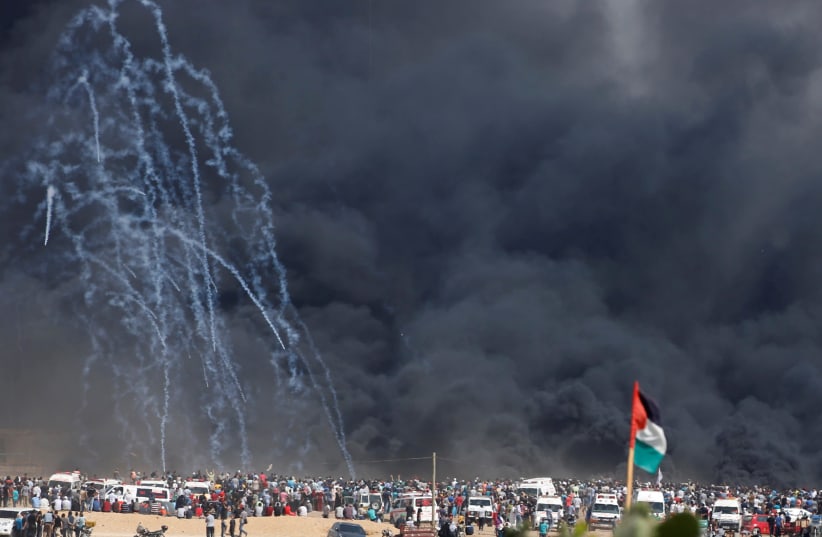"During the violent riots, the forces identified an attempt to breach the security fence and infiltrate into Israel from the northern Gaza Strip and fired to stop the attempt," the IDF statement said, though it is not clear if this statement relates to the death of the Palestinian youth."The Hamas terror organization continues to send civilians to the security fence, endangering their lives by using them as a cover for terror acts," the statement continued. "The IDF will not allow security infrastructure or the security fence, which protects Israeli civilians, to be damaged, and will operate to prevent violent rioters and terrorists from doing so."More than 130 Palestinians have been killed in the Israel-Gaza border protests which have entered their fourth month.Palestinians say the protests are a popular outpouring of rage against Israel by Palestinians demanding the right to return to homes their families fled or were driven from during the war of 1948.Israel says the demonstrations are organized by the Islamist terrorist group Hamas that controls the Gaza Strip and denies Israel's right to exist.As part of the protests, Palestinians have burned hundreds of acres of agricultural land near the border by sending kites carrying torches and helium balloons.Tens of thousands took part when the protests were launched at several locations along the Gaza earlier in the summer, but the number has dropped significantly in the past several weeks and only a few thousand have participated recently.Israel has accused Hamas of stoking the violence in an attempt to deflect domestic opinion from Gaza's energy shortages and faltering economy.Israel maintains a naval blockade of Gaza and tight restrictions on the movement of people and goods at its land borders. Egypt has also kept its own Gaza frontier largely closed. Both countries cite security concerns for the measures, which have deepened economic hardship.15 year old Othman Rami Halas killed by Israeli occupation forces today at #GreatReturnMarch #Gaza . #Palestine pic.twitter.com/V5WhRvLi4V
— Palestine (@OccuPalGaza) July 13, 2018
Rocket barrages fired from Gaza after IAF strikes Hamas targets
The incessant mortar fire from Gaza has led to rocket sirens going off in at least sixteen communities in southern Israel.
